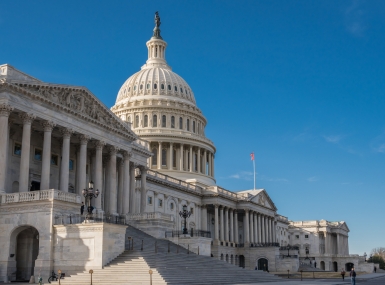Author

Ruby Laine
Upcoming Events
Related News

As the deadline for spending American Rescue Plan Act (ARPA) funds approaches, local governments are planning for the challenge of sustaining newly launched or expanded programs without those resources.
In Texas, one county has been ambitiously building its continuum of behavioral health care and pursuing innovative solutions. This proactive approach aims to ensure the sustainability of essential mental health services for its residents in the long term.
Harris County Commissioner Lesley Briones addressed a convening of criminal justice and behavioral health policymakers, advocates and administrators in early May to share her priorities for the future of the county’s mental and behavioral health work. Briones emphasized the county’s ongoing commitment to prioritizing mental health but expressed concerns about the longevity of these programs without sustained assistance from state and federal partners.
“We have made these investments, but I worry about the continued funding sources, especially with the legislation in Texas with regard to revenue caps and with regard to the ARPA horizon,” she said.
She highlighted alarming data: Despite the county’s efforts, the situation is deteriorating. Harris County now houses the largest mental health facilities in the state – the county jail. To reverse this trend, Briones stressed the importance of making data-driven decisions to drive best practices.
So far, the county has invested $8 million ARPA funds in a new Youth Diversion Center, focusing on children ages 13-17 facing non-violent or misdemeanor charges. An additional $4.5 million has been invested into the behavioral health workforce, bolstered by advocacy for the expansion of Holistic Assistance Response Teams (HART) which deploy trained clinicians and EMTs to respond to mental health related 911 calls.
Further initiatives by the county include providing funding to reduce 911 response times and establishing the Women’s Empowerment detention center. These initiatives underscore Harris County’s strategic approach to creating a robust and enduring mental health care system, emphasizing both preventive measures and responsive services.
It can be challenging when state budget requirements or funding decisions impact the county’s allocations, especially when they would have been made differently otherwise. This experience is shared by counties across the country, which may have priorities that differ from those of their state legislatures. As Harris County navigates these difficulties, collaboration and innovation remain priorities to their approach.
The county aims to complete the allocation of their unspent ARPA funds by the end of 2024 and spend them by the end of 2026. Key priorities include health, housing, jobs and education, justice and safety and county operations.
An ARPA-specific equity framework continues to guide project selection to ensure fair distribution and community engagement. As other counties confront similar challenges, Harris County’s approach can serve as a model for implementing and improving a robust and effective mental health continuum of care.
Related News

U.S. Congress begins work on budget reconciliation process: What this means for counties
The House and Senate Budget Committees have marked up Fiscal Year (FY) 2025 budget resolutions to initiate the budget reconciliation process to enact policy priorities without garnering bipartisan support, although the two chambers differ in their approach to drafting the legislation.
Panel: People in crisis need support, not handcuffs
Counties can better serve people experiencing a behavioral health crisis by engaging behavioral health specialists instead of law enforcement, experts told county officials at a recent meeting held at NACo headquarters.

Lawmakers reintroduce the Build Housing with Care Act
On January 30, Senator Ron Wyden and Congresswoman Bonamici reintroduced the Build Housing with Care Act. This legislation would establish a new competitive grant program under HUD intended to boost the supply of co-located child care facilities and affordable housing developments.
Resource
County Responses to the COVID-19 Pandemic: Behavioral Health
